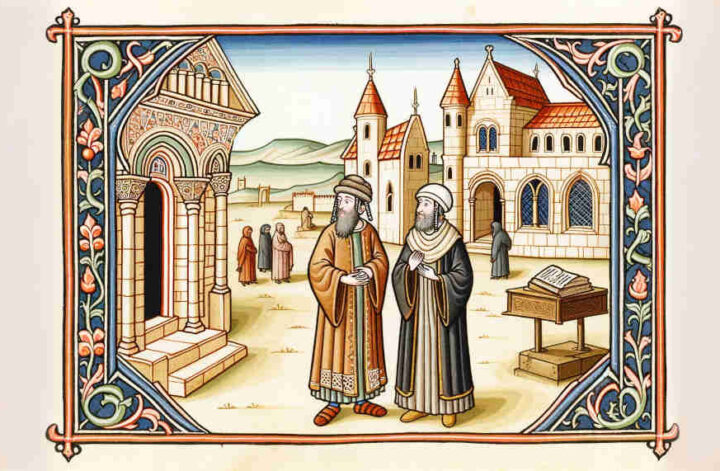Email from Emma Goldman:
Dear Rabbi Joshua,
I recently came across a quote that says, “It is forbidden to disclose the secrets of the law. He who would do it would be as guilty as though he destroyed the whole world.” It’s attributed to “Jektut Chadasz, 171, 3.” This statement has left me quite troubled, and I’m wondering if this is really in the Talmud. Could you please help clarify this?
Best,
Emma Goldman
Understanding the Context of “Jektut Chadasz, 171, 3”
Dear Emma,
I appreciate your reaching out to seek clarity on this matter. Let’s delve into the context and authenticity of the quote you mentioned.
About the Source: The reference “Jektut Chadasz, 171, 3” does not correspond to the Talmud or any well-known classic Jewish text. The Talmud, a central text in Rabbinic Judaism, is composed of the Mishnah and Gemara and does not include a section titled “Jektut Chadasz.” It’s possible that this reference could be to a lesser-known or obscure work, but it is not a part of the mainstream Talmudic literature.
The Nature of the Statement: The quote itself, regarding the secrecy of the law, is not a principle found in mainstream Jewish teachings. While there are discussions in Jewish tradition about the careful transmission of certain esoteric or mystical teachings, the foundational texts and laws of Judaism are not considered secret and are openly studied and discussed.
Jewish Tradition on Learning and Sharing Knowledge: In fact, Jewish tradition encourages the study and sharing of Torah and its teachings. The Talmud and other Jewish texts are replete with dialogues, debates, and discussions, emphasizing the importance of learning and transmitting knowledge to others. The ethos of Jewish learning is one of accessibility and communal sharing of wisdom.
Approach to Studying Jewish Texts: When encountering quotes or references to Jewish texts, especially obscure ones, it’s important to consult knowledgeable scholars or reliable sources. Misattributions and misunderstandings can arise, leading to confusion about the teachings and values of Judaism.
In conclusion, Emma, the statement you’ve encountered does not appear in the Talmud or mainstream Jewish texts. Jewish tradition values the sharing and open discussion of its teachings, contrary to the idea of forbidden secrecy suggested in the quote. I hope this clarification brings you some peace and understanding.
With blessings and in the spirit of learning,
Rabbi Joshua


